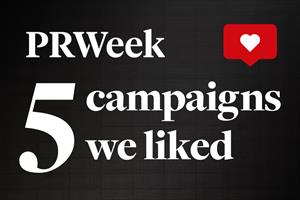If you Googled "Uber" on Friday afternoon, the first result that popped up was an ABC News story with the latest details about the Michigan driver who allegedly shot six people last Saturday.
Click on Google News results, and the first link at the top of the screen asks, "Which is safer – Uber or a taxi? There’s no clear answer." The second result notes that California is reconsidering fingerprint checks for Uber and Lyft drivers. And that’s nothing compared with the volume of negative stories from earlier this week.
Uber will be dealing with headlines like these for a while, as the case against 45-year-old Jason Dalton proceeds and the company's system of background checks is scrutinized. Yet it deserves credit for restraint – something not often associated with Uber a year and a half ago – in its response to the crisis.
In the immediate aftermath of the shootings, Uber’s response was short, to the point, and wholly appropriate. Its comms team and executives were smart to mostly keep quiet in the few days that followed, except for a media conference call in which a company safety adviser dismayed the "availability of guns in the hands of people who shouldn’t be able to have such easy access to them."
On the Web, it issued a short statement from its chief security officer expressing sympathy with the victims, tweeted it, and then went radio silent on social media for three days – avoiding the social media faux pas that have made many companies look insensitive in recent years.
We asked crisis communications experts how long a brand should stay out of sight on social media after a deadly crisis. Their response: The rule is there is no rule; every crisis situation is different. But when Uber reemerged, it saw little, if any, backlash, and certainly nothing along the lines of the outrage it faced after changing its logo earlier this month.
The discipline was impressive, especially considering the brash reputation the company and its leadership built in its early years. It was only 15 months ago when Uber SVP Emil Michael, in a moment of extreme carelessness or arrogance, suggested in front of a journalist from BuzzFeed that the company could hire a team of researchers to look into the personal lives of critical journalists. He apologized, but early investor Ashton Kutcher only poked the bear again by suggesting there was nothing wrong with Michael’s comments.
A month earlier, Uber CEO Travis Kalanick was accused of perpetuating a "horrific trickle down of asshole culture" by Pando Daily. His brash speeches about the taxi industry and jousts with customers about Uber's surge pricing business model have been well-circulated. Nowadays, he’s also known for TED Talks (and the occasional questionable branding decision).
Yet Uber’s response to last weekend’s tragedy in Michigan was well-reasoned, no doubt thanks in part to policy and comms lead Rachel Whetstone, who joined the company last May, and former Obama for America campaign chief David Plouffe. It’s also resisted the rush to go public, a decision that has come back to bite other tech-sector prospects.
The company faces business challenges around the world, from conflicts with unions in Europe to disputes with drivers and clashes with municipalities in the US, but its maturity shows it could be up to the task. Uber, not always known for maturity, is growing up.
Frank Washkuch is news editor of PRWeek.













